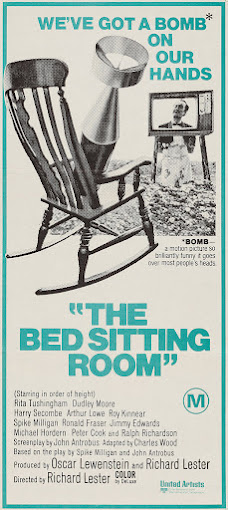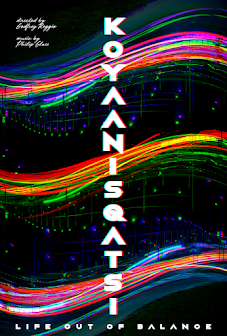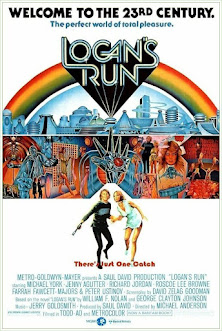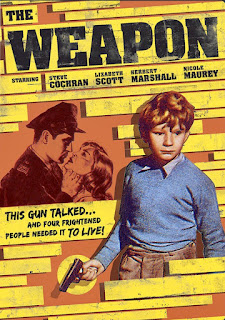Today it's genocide, apocalypse comedy, Karloff & Lugosi together, life out of balance, no old people allowed, alt rock, and a boy with a gun.
 |
| The Neverending Film Festival #92 |
• Ararat (2002)
• The Bed-Sitting Room (1969)
• The Black Cat (1934)
• Koyaanisqatsi (1982)
• Logan's Run (1976)
• The Sparks Brothers (2021)
• The Weapon (1956)
None of it makes me want to grab you by the belt buckle and insist you watch, but all these movies are pretty good, except the first one.
— — —
Ararat (2002)
Atom Egoyan ventures away from his ordinary turf to make a complicated, many character and multi-narrative film that's kind of about the 1915 genocide of the Armenian people by the Turks.
The movie left me mostly unaffected, which is amazing. How could anyone not be outraged by the killing of maybe a million men women and children? Well, I'm as outraged as it's possible to be about a crime against humanity from more than a century ago, but the film isn't really about that.
It takes place in the present day, and concerns the making of a period-piece film about the 1915 genocide, told mostly through the eyes of a young man who serves as a lackey for the filmmaker within the filmmaker's film.
Ever played the game of 'Telephone'? By the time Egoyan's story reaches this movie's audience, a lot of it's been lost along the way, and it feels like long distance.
Verdict: NO.
♦ ♦ ♦
The Bed-Sitting Room (1969)
This is a post-apocalyptic comedy from Britain in the 1960s, based on a play by Spike Mulligan and John Antrobus, and directed by Richard Lester (A Hard Day's Night, Superman). After the "nuclear misunderstanding" which led to the Third World War, plucky olde England buries its 40,000,000 dead and gets on with stiff upper-lip life. It features Marty Feldman (Young Frankenstein), and I'd never noticed before, but his freaky eyes were under his control. In some scenes they're bulging out of his face; other scenes he retracts his eyeballs and becomes a surprisingly handsome man.Much of the plot is about a very old-looking man pursuing and marrying a very young blonde, which is gross even to me, an old man who definitely finds young blondes attractive.
It's a comedy but I didn't laugh much. Laughed mighty loud when I laughed, though, and over the course of an hour and a half I got to know and like most of these buffoonish British survivors.
The opening credits lists the cast in order of height.
Verdict: YES.
♦ ♦ ♦
The Black Cat (1934)
Boris Karloff and Bela Lugosi, together.Newlyweds on a train trip get snookered into sharing their compartment with Lugosi, who says the the lady reminds him of his long-lost wife. For no good reason, Lugosi accompanies the couple on a bus ride. Then there's a wreck, and Lugosi suggests they all stay the night at Karloff's conveniently close-by castle.
There's not much black cat in The Black Cat, but it's interesting, occasionally frightening. Much of the drama plays wordlessly, almost like a silent movie, and the musical score is classical music.
Some of the visuals are great, thanks to noir mastermind Edgar G Ulmer, who wrote and directed this, based on something unspecified by Edgar Allan Poe.
There's a marvelous moment when the groom poo-poos the unnatural storyline as superstitious baloney, and Lugosi replies, "Superstitious, perhaps. Baloney, perhaps not." It's a nothing line, but with his accent and delivery, it's not only perfect, it feels like one of the great movie lines of all time.
The story really is a lot of baloney, but Karloff and Lugosi give it all they've got, and if you've ever seen a classic horror flick you may have noticed, they've got a lot.
Verdict: YES.
♦ ♦ ♦
Koyaanisqatsi (1982)
Here's an hour and a half of gorgeous cinematography by Ron Fricke, set to sometimes hypnotic, sometimes spacey, sometimes tedious music with the occasionally repeated lyric, "Koyaanisqatsi."At the end, the movie explains that the title is a Hopi Indian word meaning "life out of balance."
That's the message here, told through beautiful imagery of nature, followed by destruction, and a long montage of humans doing the ordinary things humans do — commuting to work, working, eating, and uglifying the planet, sometimes with the video sped up.
The score is by Philip Glass, and sometimes gets so repetitive it sounds like a few snippets of music played on a loop. I turned it down several times, and eventually muted the sound. The film has no narration, so nothing's lost in silencing it unless you're a Phillip Glasshead.
It's an excellent film, and even better as a silent film.
Verdict: YES.
♦ ♦ ♦
Logan's Run (1976)
In this flick's future, everyone dies at age 30. It's the law. On your 30th birthday, you must report to Carousel, where people float in the air until they're blasted to smithereens.Any unpatriotic fools who run from this fate are tracked down and killed by cops, poetically called 'sandmen'. Michael York plays Logan, a sandman, and we see him kill a runner in an early scene.
This gets him horny, so he calls for a hooker (Jenny Agutter), but she refuses to boink a sandman, and calls him a killer. Logan is shocked at the accusation, and says, "I've never killed anyone in my life. Sandmen 'terminate' runners."
Logan is sent on an undercover mission to ferret out more runners, and his 'disguise' is having his age artificially increased — the device implanted in his hand now indicates that he's almost 30, due for death. When Logan asks the computer whether his remaining years will be restored, the answer is silence, so he sorta has no choice. Instead of infiltrating the runners as a cop, he has to actually run, else his life is finished at 26.
Logan, then, is the classic Republican — he sees no injustice until it affects him, and then it becomes an outrage. Like Dick Cheney, famously opposed to gay rights until his daughter came out as a lesbian, and he suddenly said "Freedom is for everyone." Logan is hard to stomach as a hero, and York does nothing to make him likeable.
If there's a message to Logan's Run beyond "Let people be 31," it didn't register with me. And if Logan's going undercover, how come he never changes out of his sandman/cop uniform?
Those are my gripes, but the film is 1970s beautiful, with gaudy sets and colorful costumes, impressive miniatures, and a stylishly futuristic look that somehow simultaneously says very big budget while being as cheesy as Wisconsin. Jerry Goldsmith wrote a bippity boppity score that has a beat and you can dance to it, and toward the end, Peter Ustinov hams it up delightfully as the only old person Logan has ever seen.
All in all, Logan's Run must be seen to be disbelieved.
Verdict: YES.
♦ ♦ ♦
The Sparks Brothers (2021)
From Edgar Wright, known for big comedies and the Cornetto trilogy, this is a documentary about the not-British band Sparks. Fronted by two brothers, Ron and Russel Mael, Sparks has been making bizarre and often funny music since the 1960s.I only discovered their addictive sound a few years ago, but 19 of their songs are now on my perpetual playlist. No other band has that many. No other band has half that many. I like Sparks.
They haven't had many hits, though. In their very long career they've come close to success a few times, even cracked the top ten once, but for the most part they've sung in undeserved obscurity.
Ron writes the music and lyrics, and as he (jokingly) says himself, he's Sparks. Russ sings, and while he does have a terrific and distinctive voice, there are other singers in the world. The songs written by Ron Mael, sung by Russ, are quite different from ordinary pop music. Some of their songs suck, sure, but some are brilliant.
Among the celebrity testimonials I recognized, there's Beck, Jane Wiedlin, Giorgio Moroder, 'Weird Al' Yankovic, Todd Rundgren, Flea, Amy Sherman-Palladino, Neil Gaiman, Patton Oswalt, Doctor Who's Mark Gatiss, and of course, Edgar Wright.
"With advances in medical technology, hopefully there will be two- to three-hundred more Sparks albums."
Like all of Wright's movies, The Sparks Brothers is visually clever and a delight to watch. There are snippets from lots of great Sparks songs, they sing some of the opening credits, and there's one complete Sparks song at the end.
Verdict: YES.
♦ ♦ ♦
The Weapon (1956)
A British kid finds a gun, accidentally shoots a friend, and he knows he's in trouble so he goes on the lam. The cops are looking for the boy, but there's also an American military man with a hardon for the gun itself — it's the same gun that was used in an unsolved killing some years earlier.The American is completely uncaring about the missing boy, and he's eager to beat the shit out of anyone who doesn't answer his questions quick enough. There's simply no doubt that he'll become a cop when he's done being a military man.
"I am dead. But I won't fall down. Do you hear me? I am dead. And they buried me in this hole."
The story is dark, occasionally thrilling, and because Val Guest (The Day the Earth Caught Fire, Jigsaw) made it there are funny, human moments.
Verdict: YES.
10/17/2022
There are so many good movies out there — old movies, odd or artsy, foreign or forgotten movies, or do-it-yourself movies made just for the joy of making them — that if you only watch whatever's on Netflix or playing at the twentyplex, you're missing out.
— — —
DVD • public library • streaming
If you can't find a movie I've reviewed,
or if you have any recommendations,
please drop me a note.







.jpg)
No comments:
Post a Comment
🚨🚨 If you have problems posting a comment, please click here for help. 🚨🚨